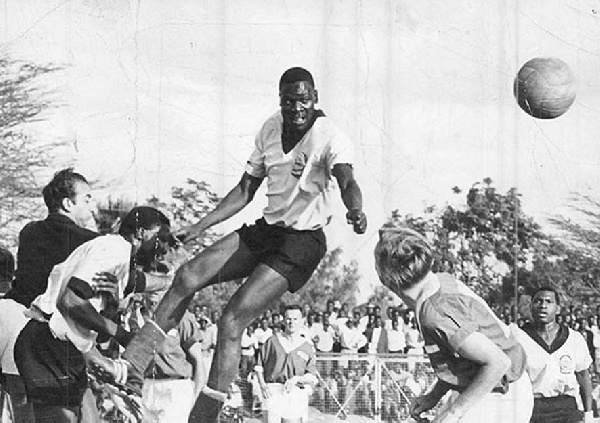He was known by many names, David Odhiambo son of Nicodemus, alias Daniel Odhiambo son of N. Owiti, alias Daniel Odhiambo son of Nicodemus, alias Daniel Nicodemus.
Generally, Daniel Odhiambo preferred to be called by his father’s name, Nicodemus Arudhi, while leading a double life — a footballer by day, a criminal by night.
The Kenyan Gor Mahia F.C. player was loved by his friends and teammates both in his club and in the national team, having been a great player who played three international matches for his country against Togo, Mali and Cameroon in the 1972 Africa Cup of Nations against Mali.
But away from the pitch, Arudhi was robbing people at night, becoming one of Kenya’s most wanted men in the 90s. In fact, he was jailed several times and was even charged with murder once.
His colleagues did know about his other life even though they never brought it up. At a time when football was only paying allowances, Arudhi had large amounts of money, wore expensive leather jackets and designer shirts, traveled comfortably in taxis while his colleagues were using buses, among other extravagant lifestyles.
His colleagues did notice these things, including the fact that he was a loner and usually had a pistol on him. One of them even claimed that he once stole an expensive suit from a man when they were in Paris in 1976.
But Arudhi was such an indispensable member of the national team that at least once in 1965, he was temporarily released from prison to play for the national team amid a heavily armed contingent of prison wardens who took him back to serve out his term after the game, according to Kenyan media.
It is not clear why he was in jail at the time, though many believe it was for robbery. Spending most of his life in prison following many run-ins with the law, records show that the footballer never missed practice unless he was in prison. Sometimes, he is forced to jump over the stadium fence during practice just to avoid the police.
But his luck ran out in June 1981 when he was shot dead by the police. An official report from the police claimed that Arudhi, before his death, had surrendered to the police on June 21, 1981, and had offered to show them where he hid his guns. But when they got there, he decided to escape, and the police gunned him down.
The Kenyan government would later pay his family Shs250, 000 (now $2,301) as compensation.
“Nicodemus was my friend,” Arudhi’s friend and teammate Allan Thigo later said in an interview. “He was gentle, generous and very hard working. He was crazy about training. But he had a secret: the guy was a gangster!”

